What is Ego Development?
Ego Development includes a wide range of different related personality aspects. These are closely interwoven over the entire sequence of Ego Development stages and can be summarized in overarching areas. There are essentially four areas in which Ego Development takes place:
Character
Dealing with impulses and your own and other people’s standards
Interpersonal Style
Your natural way of dealing with other people
Conscious Preoccupation
Areas that are the focus of your own attention
Cognitive Style
Your possible transformation
With each stage of development you reach a qualitatively different level
Ego Development takes place over a certain number of qualitatively different stages. You can imagine these stages of personality development as containers stacked one on top of the other (see graphic). The next stage in each case contains all the achievements of the previous development levels and transforms them at the same time.
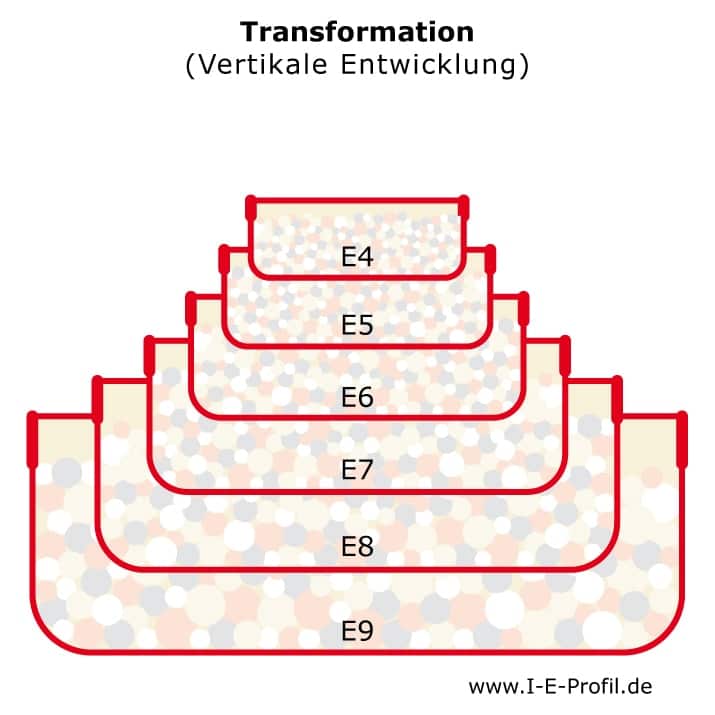
With each further stage of Ego Development, you can deal more and more freely with yourself and your environment and find it easier to deal with ambiguous and complex situations. You gain more inner freedom, are better able to cope with changes and see more and more options for action.
You can systematically promote this process of vertical development. Through diagnostics with the Ego-Development-Profile, as part of coaching or in management development programs. Also, to pave the way for your leadership team and your organization to a higher level of effectiveness.
10 stages of Ego Development
On the way to maturing your personality, you will go through ten qualitatively very different phases. These phases of ego development have been well researched and can be (reliably) measured scientifically.
*The first stage only occurs in children and has therefore been omitted.
What is a developmental stage approach?
Most personality models and the resulting personality tests measure characteristics. These personality traits remain largely stable throughout life. For example, how open or conscientious you are. A person’s temperament in particular is very stable. You will therefore not be able to turn an introvert into an extrovert (and vice versa). However, how you deal with the personality traits that shape you is a question of your development, i.e. the maturity of your personality.
Jean Piaget, stucturalism and cognitive development during childhood and adolescence
The Swiss researcher and world-renowned developmental psychologist Jean Piaget was able to show in his groundbreaking research that the thinking of children and young people progresses through qualitatively different stages of development. This development appears to follow a universally fixed sequence. Each stage builds on the previous development stage and expands it at the same time.
Jean Piaget
© Archives Piaget
Stages of personality development in adolescence and adulthood
Scientists such as Jane Loevinger and Robert Kegan have taken up and extended Jean Piaget’s Constructive Developmental Stage Approach. They explored not just how thinking develops, but personality as a whole (in terms of personal maturity). In this way, they were able to identify qualitatively very different stages of personality development. These are not linked to a person’s age and, in the case of adults, are largely independent of age.
Different degrees of personality maturity have a major impact on how a person thinks, feels and acts. Knowledge of this fundamental aspect can therefore be of great benefit for management diagnostics and executive development or one’s own further development, for example through targeted coaching.

Ego Development - The Book
Basic work on scientific research, stage model, comparison to personality theories and practical relevance of ego development
What readers write about it, from reviews on amazon (german edition):
And finally there is a work that deals with the subject of "vertical development" in a more differentiated, precise, more readable and profound manner than the literature I have known so far.
Anyone who has experienced Thomas Binder knows how much he stands for this topic and with how much passion and incredible depth he speaks about this important subject.
The book makes this complex topic tangible and discussable. From my point of view: 5 stars plus!
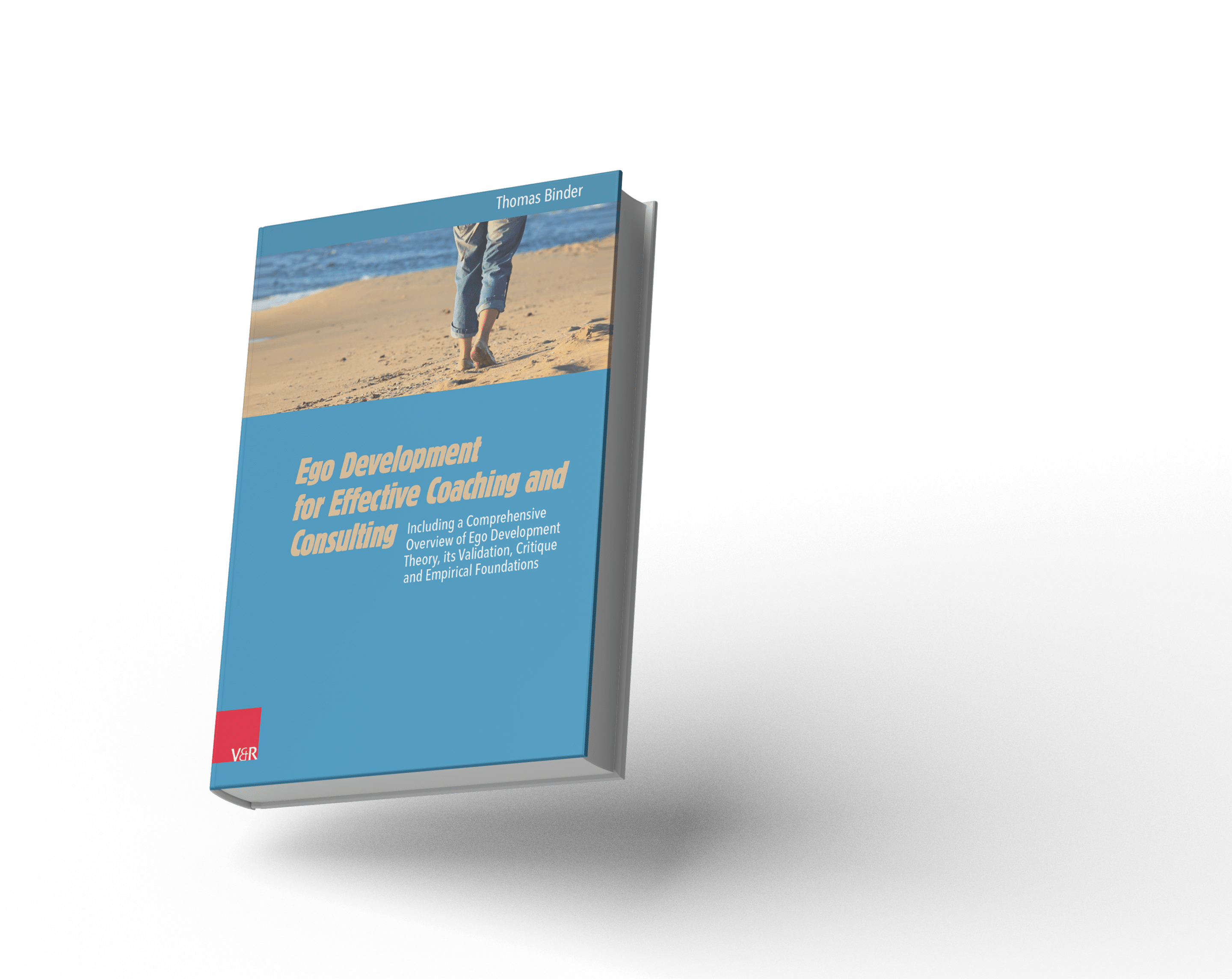
Available at:
Worldwide research on the relevance of Ego Development
The model of ego development has been researched worldwide in hundreds of empirical studies and confirmed time and again. Publications on these research results can be found in almost all well-known scientific journals.
The level of Ego Development is one of the most central aspects of a human being. This part of your personality influences how you think, feel and, most importantly, act. Whether as a mother, spouse, coach, consultant, HR manager, in management or as CEO.

Manners & Durkin, Journal of Personality Assessment, 77(3), 2001
„… the research conducted in the 20 years since the last review (Loevinger, 1979) has provided further support for the conceptual soundness of ego development theory.”
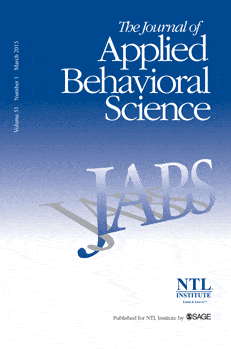
Bushe & Gibbs, Journal of Applied behavioural science, 26 (3), 1990
„The findings of this study further support a small but growing trend in applied behavioral science toward seriously considerung the notion of adult development when trying to understand and plan for training and development interventions into human systems.
We conclude that a certain level of ego development is necessary to use organisational development behaviors and techniques competently.”

Cook-Greuter, Industrial and Commercial Training, 36 (7), 2004
„… the level of development of the managers, consultants and coaches constrains what they can see and understand and how effective they are in their efforts to help others develop and mature … Generally, postconventional leaders will be in a better position to guide their organizations to successfully change and adapt in complex environments and through turbulent times than conventional leaders.”
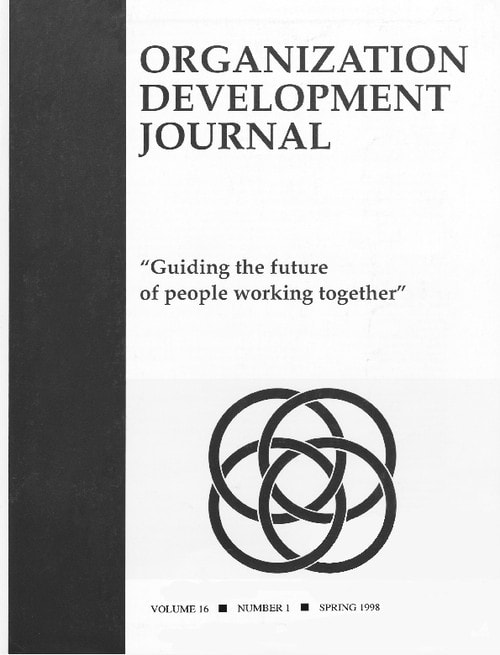
Rooke & Torbert, Organization Development Journal, 16 (1), 1998
„… the ego development stage of the CEO and of his or her most trusted advisors is a critical variable influencing the likelihood of successful progressive organizational transformation.”
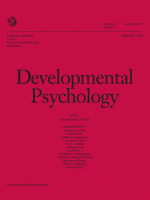
Bauer & McAdams, Developmental Psychology, 46 (4), 2010
„Higher levels of ED [ego development] involve greater capacities for perspective taking, less defensiveness, and other qualities of psychosocial maturity …
ED levels appear to remain relatively stable throughout much of adulthood (Cohn, 1998). So it seems that emerging adulthood (Arnett, 2000) serves as the last period in which substantial gains in ED are expectable — that after this point, society leaves individuals more or less on their own to cultivate more complex, integrative understandings of their psychosocial lives.”
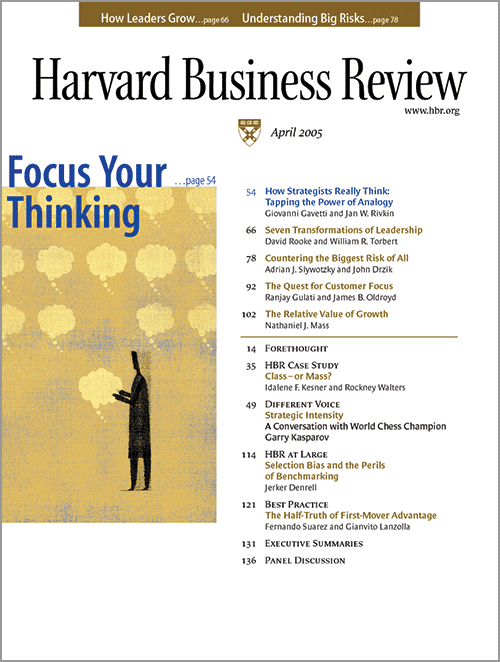
Rooke & Torbert, Harvard Business Review, 4, 2005
„The leader´s voyage is not an easy one. Some people change little in their lifetimes; some change subbstantially. Despite the undeniably crucial role of genetics, human nature is not fixed.
Those who are willing to work at developing themselves and becoming more self-aware can almost certainly evolve over time into truly transformational leaders …
Corporations that help their executives and leadership teams examine their action logics can reap rich rewards.”

Heaton, Graff & Alexander, Journal of Managerial Psychology, 11 (4), 1996
„Actualizing higher development has positive implications for the performance of the individual and the organization. Therefore procedures which systematically cultivate human maturation can unfold performance potential.”
Sign up for the Ego-Development-Profile newsletter!
This gives you exclusive, free access to our downloads, publications, recommended literature and other interesting content on the subject of Ego Development. Of course you can unsubscribe at any time.
By using the form I agree to the privacy policy.




